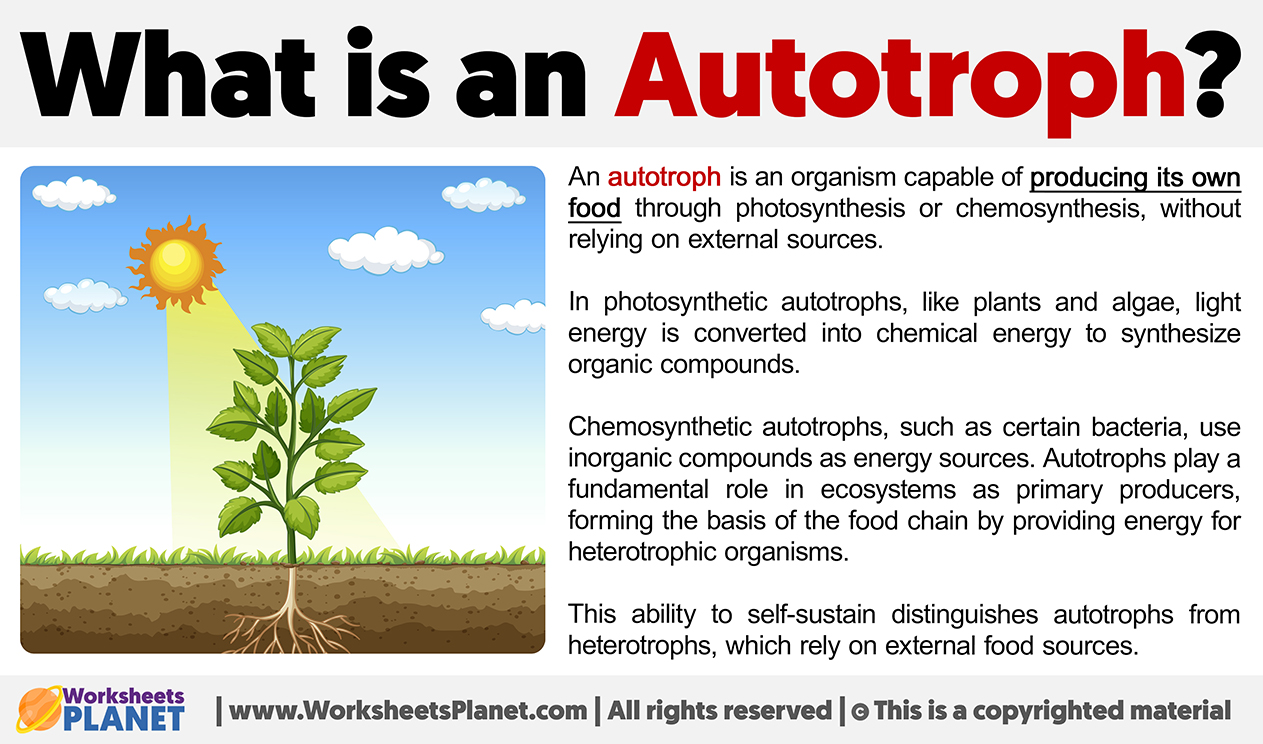An autotroph is an organism capable of producing its own food through photosynthesis or chemosynthesis, without relying on external sources.
In photosynthetic autotrophs, like plants and algae, light energy is converted into chemical energy to synthesize organic compounds.
Chemosynthetic autotrophs, such as certain bacteria, use inorganic compounds as energy sources. Autotrophs play a fundamental role in ecosystems as primary producers, forming the basis of the food chain by providing energy for heterotrophic organisms.
This ability to self-sustain distinguishes autotrophs from heterotrophs, which rely on external food sources.


